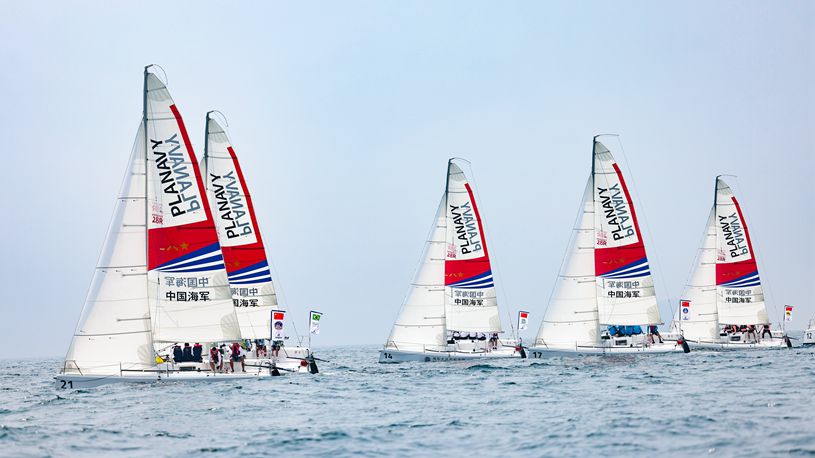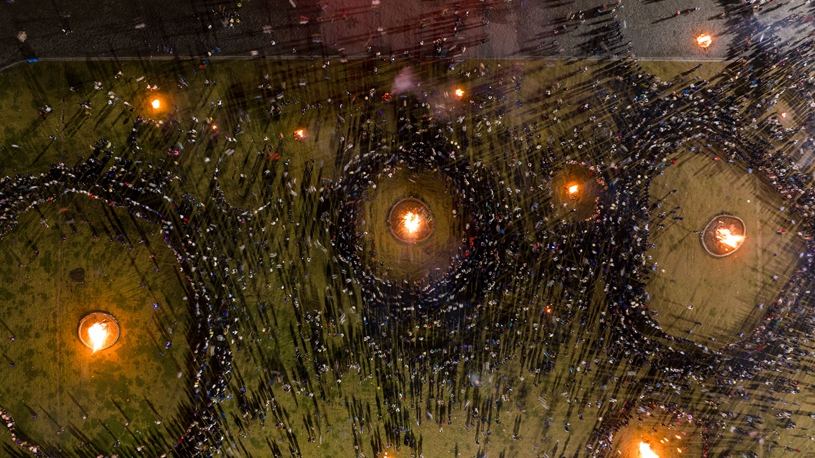PARIS, July 26 (Xinhua) -- Almost every Olympiad sees new sports introduced and some other events dropped amid discussion, anger and controversy. Recent Games have seen BMX biking and skateboarding introduced, with questions asked over whether they really qualify as sports.
The introduction of breakdancing also caused raised eyebrows: does an event that has its roots in music and street culture have a place in the Olympics and even if there is no doubt the fitness and agility of the competitors, many ask: Is it sport? Is it culture? Or is it art?
Breakdancing may be all three, but even if you consider it to be purely culture, a look into the history of the Olympic Games shows there were events that had absolutely nothing to do with sport and everything to do with art.
Britain's John Copley holds the record for being the oldest person to win an Olympic medal, claiming silver in 1948, although his event of 'Art, Painting, Mixed Engravings and Etchings' wasn't exactly testing his aerobic ability or agility.
It may be hard to believe nowadays, but at the beginning of the Olympic movement, art was at the center of the ideals of Baron Pierre de Coubertin. The man considered to be the founder of modern Olympics saw culture as part of the ideal of educating people in both body and mind, although it wasn't until 1912 that Stockholm saw the first Olympic competition, with medals handed out in five different categories (architecture, literature, music, painting and sculpture), with the only condition for the works being that they had to be inspired by sport.
Nearly 200 works were submitted for the Paris 1924 Olympics as the movement lifted its head after the horrors of the First World War and over 1,000 works were shown in Amsterdam 1928.
There was controversy after the Amsterdam Olympics as the artists were allowed to sell their works after the closing ceremony. This produced accusations that the artists were making money from their works - which went against the strict Olympic ideal that only amateurs could take part.
It was this conflict between amateur and professional that would see the end of art, music and literature at the Olympics, with the decision taken after London 1948 that writers and artists, were essentially professionals and thus excluded from future Games.
Now, of course, many at the Olympics are professionals, so that of course raises the question: could painting, music and literature be included once again?
Maybe the future is a blank canvas... ■












